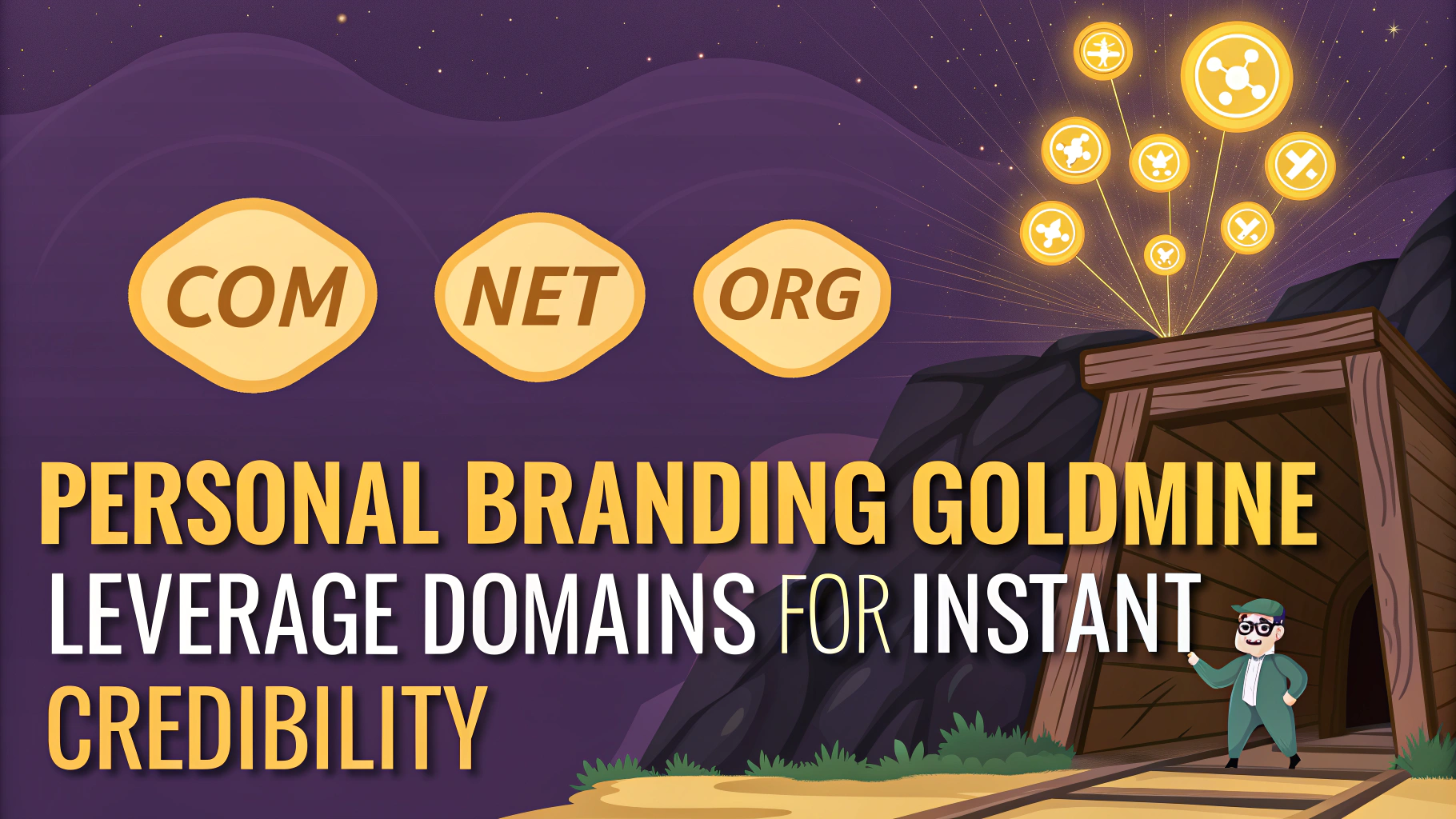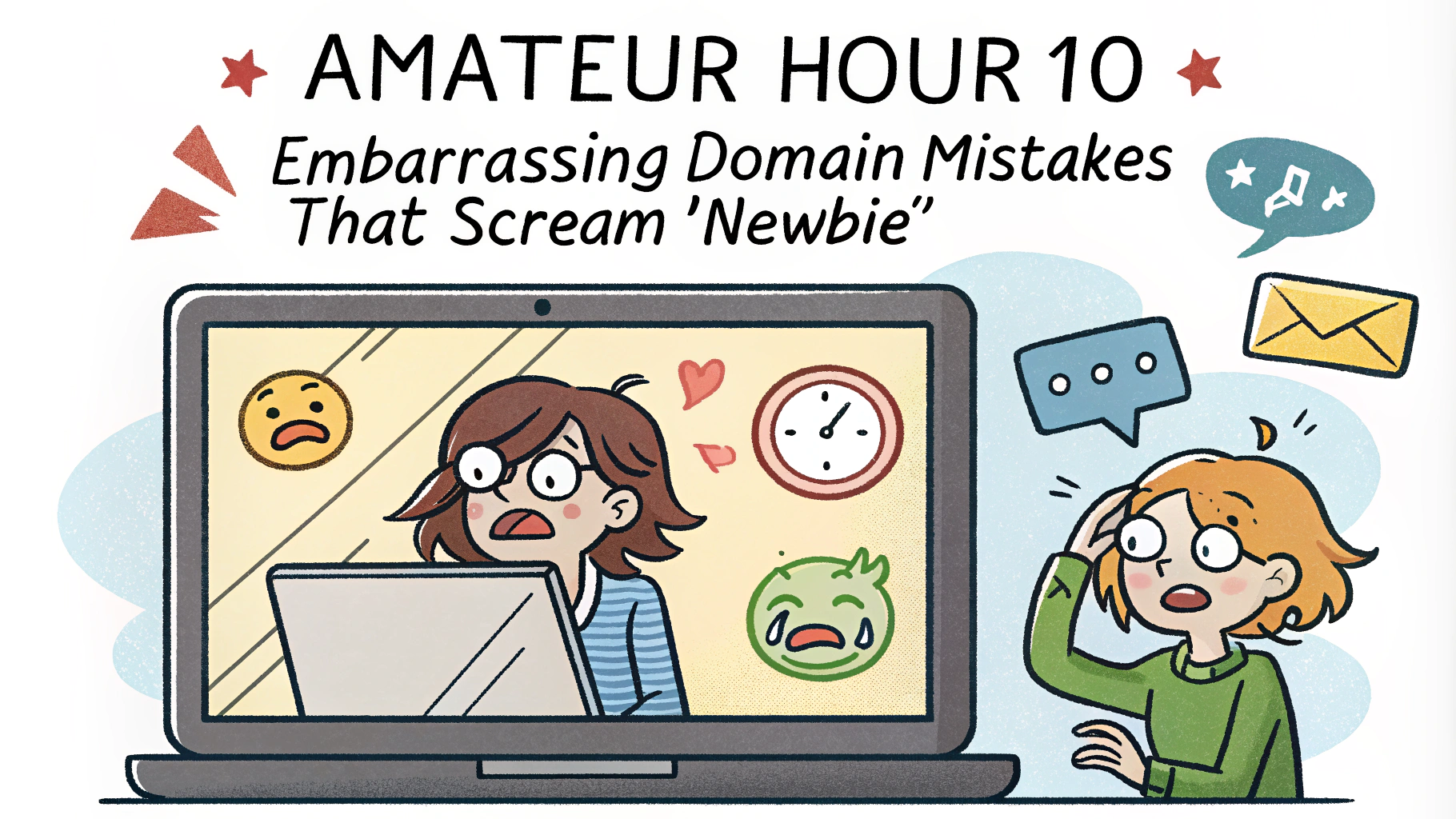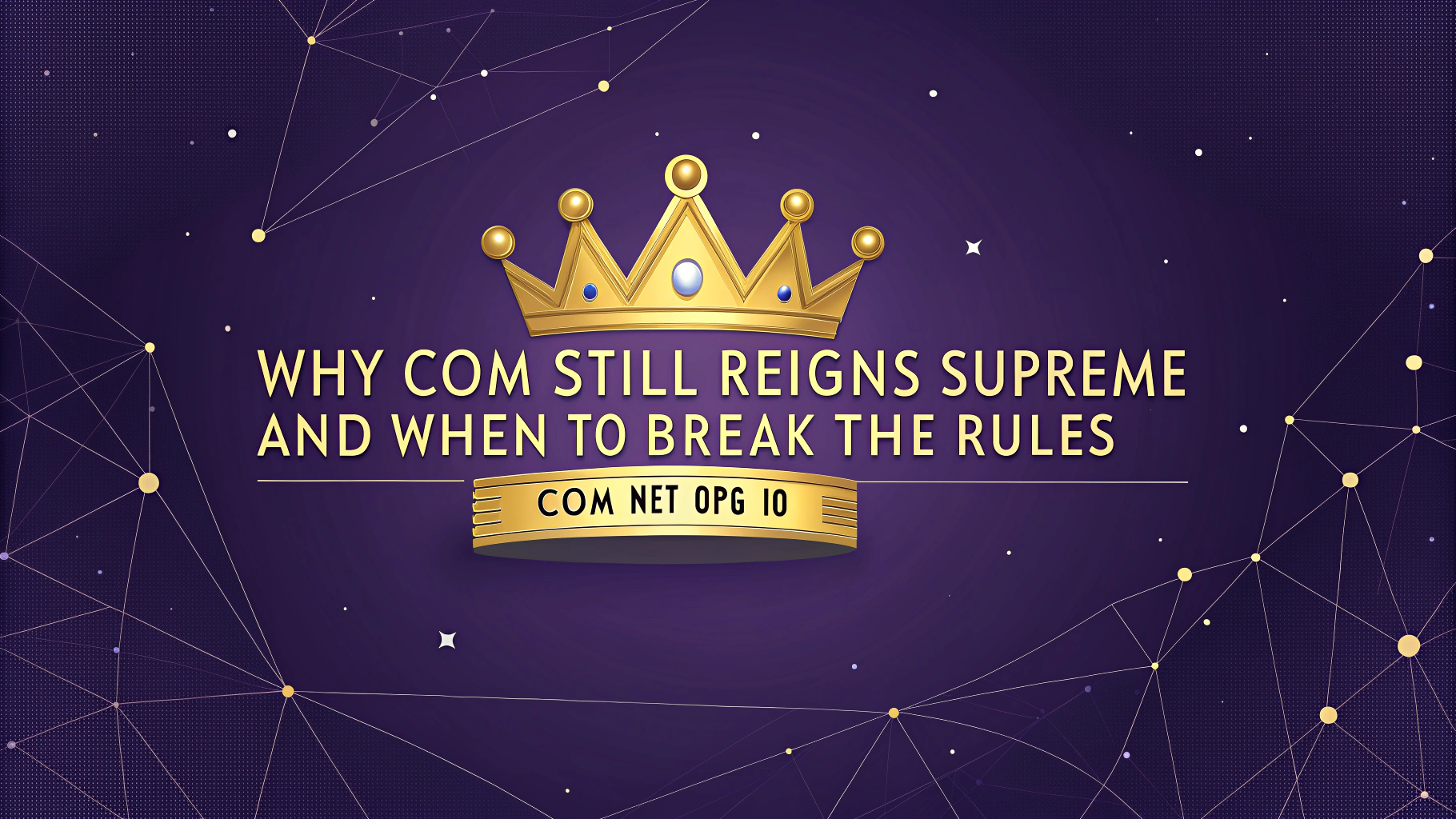Did you just come across the .io domain name extension and are wondering what it’s all about?
This relatively unknown domain ending has grown in popularity as more and more tech startups have used it as their site/app’s domain name.
Prices have soared as decent single word .io domains have sold for thousands, and even tens of thousands of dollars.
Read on to find out if they are a good option for your website, or whether they are worth investing in if you’re a domain investor.
What is a .io Extension & What Does It Mean?
The .io domain extension is the Country Code Top Level Domain (ccTLD) assigned to the British Indian Ocean Territory (BIOT) which is:
a British overseas territory of the United Kingdom situated in the Indian Ocean halfway between Tanzania and Indonesia. The territory comprises the seven atolls of the Chagos Archipelago with over 1,000 individual islands – many very small – amounting to a total land area of 60 square kilometres (23 sq mi). The only inhabitants are US and British military personnel and associated contractors, who collectively number around 3,000 (2018 figures). Wikipedia.
So, I-O must mean “Indian Ocean” from the i-o in British Indian Ocean Territory.
Without any native inhabitants, it isn’t surprising that this geographically focused domain suffix wasn’t used at all as a country level domain.
Similar to many other ccTLDs, the dot io extension was registered and used by webmasters for generic websites that didn’t have a local focus ie .ws, .tv, .co.
In particular, technology related companies, bloggers and enthusiasts were attracted to this extension because they liked the io ending.
In computing, input/output (I/O, or informally io or IO) is:
- the communication between an information processing system, such as a computer, and the outside world, possibly a human or another information processing system. Inputs are the signals or data received by the system and outputs are the signals or data sent from it.
- I/O devices are the pieces of hardware used by a human (or other system) to communicate with a computer. For instance, a keyboard or computer mouse is an input device for a computer, while monitors and printers are output devices.
- Evidently, io domains are an excellent fit for tech sites. Some may interpret io websites as mediums used by a human to communicate with a computer. But on the whole, there’s just a geeky feel about it.
Are .io Domains Good for SEO?
As an increasing number of webmasters started using .io and other ccTLDs for generic sites, it wasn’t right to treat them as being more relevant to a specific country or region anymore.
In 2013, Google made the decision to reclassify about 20 ccTLDs as generic ccTLDs or gccTLDs as they were used for a general audience more than their respective countries.
Generic Country Code Top Level Domains (ccTLDs): Google treats some ccTLDs (such as .tv and .me) as gTLDs, as we’ve found that users and website owners frequently see these more generic than country-targeted. Here is a list of those ccTLDs (this list may change).
As such, .io domain names effectively became gTLDs and the search engines treated sites built on them the same way as those on .com, .net, or .org domains.
In short, the .io web extension is not particularly good for Search Engine Optimization (SEO) purposes, nor is it bad for SEO because of any geotargeting limitations.
Should I Use a .io Domain for My Website?
Anyone can register or buy a .io domain name to use for their website. Depending on your site’s target audience, dot io may be the perfect alternative when the .com name you want is already taken.
Tech/Startup Sites
If your site has a computing or technology focus in some way, there are plenty of excellent reasons why you should consider using a .io domain:
- Meaningful: unless they’ve come across it already, your target audience may be surprised by the strange io extension initially – but when they figure out the tech connection eventually, it’ll click with them.
- Catchy: the cute, subtle link with computing makes .io domains catchy and memorable. These are great qualities to have in a domain name.
- Availability: dot com domains will always be the first choice, but the majority of good names aren’t available anymore. As a decent alternative for a tech site, you may want to use .io because plenty of good names can still be registered.
- Innovative: a lot of top .io websites are interesting, new, creative and at the forefront of web innovation. Having a .io domain may give your audience the impression that your website is progressive and dynamic in a similar way.
- The Coolness Factor: to the right audience such as budding entrepreneurs, startups are cool. Even if your site isn’t very tech oriented, there’s the cool startup factor that may give your new idea a lift by choosing the right domain extension.
Non Tech / Startup Sites
What if your site isn’t technology related, should you still consider .io as a domain extension?
It depends on your audience. Although your site may not be the next cool app with plenty of awesome tech behind it, a dot io domain could still be a good fit if it resonates with your audience.
For example, you may have a simple blog that covers some aspect of the startup journey. Your readers will be tech startup founders who are familiar with the extension already. In fact, their own site may be using a .io domain, which forms an instant connection even before they arrive at your site.
But if you’re website has absolutely nothing to do with the technology industry whatsoever, it may be better to consider other domain extensions. With so many other domain extensions to choose from, you can definitely find something that’s a better fit for your audience.
One possible exception is if you’d like to use a .io domain name hack, where the name of your site uses a word or phrase that ends with the letters io – such as www.pistach.io or www.cheer.io
Are .io Domains Worth It?
For most non-tech websites, there may be more downsides to using a .io web suffix than benefits. It is unknown and may be viewed as risky compared to a similar site developed on a familiar extension like dot com or dot net.
In essence, the .io extension either provides an advantage for your site or it casts an unnecessary doubt over your brand.
There’s not much of a middle ground.
And although the cost of registration and renewal is significantly higher than the main gTLDs, that price difference is under $50 and pales in comparison to the branding impact on your website.
So, if you’re trying to figure out if io domains are worth it, the main focus should be on what your audience will think and not so much on the domain registration and annual renewal price.
Are .io Domains Safe?
There are a few potential reasons why people may be wondering if .io domains are safe:
- As a tech oriented domain that’s popular with coders and hackers, there may be a misplaced concern that io websites may have a higher risk of being hacked.
- Or, it may be viewed as unsafe because most people haven’t heard about it before and are understandably more apprehensive about building their business around an unknown foundation.
- In 2017, an error was discovered in the .io registry’s operations by a security researcher. Although this error has been resolved, registrants may still be worried about the domain extension’s management.
Overall, if these are the worries, then it is fair to say that io domains are indeed safe.
However, if you’re concerned about how your audience may respond to your website being built on an unknown extension, then that’s a different issue.
Will some of your users be less confident to put their credit card details into a .io site compared to a .com? Possibly. It really depends on your target market.
Why are io domains so expensive?
The prices of .io domain names can be shocking.
You may have just seen a .io domain name sell for thousands of dollars or perhaps you’re trying to register an available name, and are wondering why this strange domain suffix which you’ve never heard of is so expensive.
Before taking a look into whether the prices are reasonable, it is useful to understand a bit more about the market for .io domains and the merits of the extension.
To understand domain prices properly, it is important to clarify that there is a big difference between:
- Domain Registration/Renewal Price: this refers to the registration price for domains that haven’t been registered yet, and the annual cost of renewal
- Aftermarket Sale Prices: this refers to transaction prices paid by buyers to buy domains from existing registrants
- Expired Domain Auctions: prices paid by auction bidders to acquire quality domains that are being auctioned off because they were not renewed by previous registrants
Let’s take a look at each of these individually.
Why are io domain registration and renewal prices so expensive?
The list price to register and renew io domains is about $40 but you can usually get it for less depending on which registrar you use and whether they are running any promotions.
Compared to .com’s and .net’s which cost about $10 to $15, this is a 2-3 times more expensive. Seeing as .com’s are much more popular and hence valuable, the large price difference for .io domains seems ridiculously exorbitant.
Here are some points to consider:
- Business Models: Domain registration/renewal prices are set by individual registries as part of their strategy to market and manage the namespace. Some price themselves lower to go for volume while others maintain a higher price and may have less domains registered but more availability.
- Availability: Dot IO domains may cost more to register but there are many high quality names that are available. In comparison, .com’s may be a fraction of the price to register but everything that is worthwhile is already taken.
- Timing: Dot com prices are relatively low now, and this makes .io’s $40 seem very high. Back in the 1990s when there were still plenty of good .com names available, the registration prices were comparable at $100 for 2 years.
All things considered, if you’re a tech website that can benefit from the extension’s branding – instead of expensive, it may be argued that .io domains are actually quite cheap, especially since there are many quality names that are still available.
Why are io aftermarket and expired domain sale prices so expensive?
High quality .io domain names have been resold for thousands of dollars in the aftermarket. This is very surprising for most people who are astonished at how such an unknown and inferior extension can be so expensive.
As top grade .com domains are ridiculously pricey, cash strapped tech startups had to find an alternative domain solution for their ventures.
Due to its relevance and availability, they gravitated towards dot io. In the aftermarket — for a few thousand dollars — budding startups can’t get a decent .com domain, but they can acquire a premium one word .io brand.
As some of these sites became popular, it attracted other technopreneurs to adopt the same extension for their websites and the snowball kept rolling. Prices climbed higher in line with the demand.
Seeing this, domain name speculators jumped in to invest in io domains which drove prices even higher. This resulted in premium .io domains being hunted down everywhere, including at the expired domain auctions.
So, this is how .io premium domain prices rose from a mere $40 at registration to hundreds, thousands and tens of thousands of dollars.
Is it really expensive?
The domain engage.com sold for over $800,000 in 2020. If the equivalent engage.io sold for a tiny fraction (eg 2%) of that price at $16,000 – would this be expensive? Or how about 1% at $8,000?
Whether a domain sale is cheap, reasonable or expensive depends on who’s the buyer and how they will use it.
To most people, being offered engage.io at $800 may be considered expensive, even if it’s only 0.1% of the .com’s sale price. For others, it would be a great deal – either because it’d be a powerful brand for their website, or because they know it’s value and can resell it for a 200-300% profit within a few months.
Update: October 2024
Recent developments regarding .io domains have raised concerns among users and businesses that rely on this popular country code top-level domain (ccTLD). Here are the key updates:
- UK-Mauritius Treaty: The UK government has announced a treaty to transfer sovereignty of the British Indian Ocean Territory, which includes the Chagos Islands, to Mauritius. This change could potentially impact the future of the .io domain, as it is linked to this territory[1][2][5].
- Domain Uncertainty: There are fears that once the treaty is finalized, the British Indian Ocean Territory may cease to exist, which could lead to the deactivation of the .io domain. The Internet Corporation for Assigned Names and Numbers (ICANN) relies on the ISO 3166 standard to determine eligible ccTLDs. If the ISO removes ‘IO’ from its list, this would trigger a five-year retirement process for the .io domain[2][3][4].
- Current Status: Experts suggest that while there is a theoretical risk of .io domains being phased out, it is unlikely to happen immediately. Many believe that ICANN may allow the domain to continue operating, possibly under new arrangements with Mauritius. This would mean that existing users might not need to panic just yet[1][3][4].
- Market Impact: The .io domain is particularly popular among tech startups and cryptocurrency projects, with an estimated 1.6 million registrations. Any significant changes could affect these businesses, especially if costs for registration and renewal increase due to new governance under Mauritius[2][4][5].
- Long-Term Outlook: While immediate changes are not expected, the situation remains fluid. Users of .io domains are advised to stay informed about developments and consider alternative domains as a precautionary measure[1][3].
In summary, while there are potential risks associated with the future of .io domains due to geopolitical changes, current indications suggest that users can continue operating without immediate concern.
Citations:
[1] https://domainnamewire.com/2024/10/09/io-domain-names-arent-going-away/
[2] https://www.computerworld.com/article/3552692/is-the-io-top-level-domain-headed-for-extinction.html
[3] https://www.theregister.com/2024/10/10/io_domain_uk_mauritius/
[4] https://www.odaily.news/en/post/5199000
[5] https://www.theverge.com/2024/10/8/24265441/uk-treaty-end-io-domain-chagos-islands
[6] https://www.youtube.com/watch?v=d725BsbsYqw
[7] https://www.newscientist.com/article/2451215-millions-of-websites-could-be-impacted-by-uk-deal-on-chagos-islands/
[8] https://tuta.com/pl/blog/what-happens-with-io-domain
.io Domain Uncertainty: What Businesses and Investors Need to Know
The recent UK-Mauritius treaty and its potential impact on the .io domain have raised concerns among businesses and domain investors. Since .io domains are linked to the British Indian Ocean Territory, there’s speculation that changes in governance could affect their future. However, despite these risks, it’s highly unlikely that the .io domain will disappear anytime soon.
Key Points to Consider
- Popularity: .io domains are a cornerstone for tech startups and innovative companies, with millions of websites relying on them.
- Investment: Significant investment and revenue are tied to .io, making it unlikely for governing bodies like ICANN to phase out the domain.
- Potential for Alternative Solutions: Even if the British Indian Ocean Territory loses its ISO designation, new governance structures could keep the domain operational.
Reasons Why .io is Unlikely to Disappear
| Factor | Details |
|---|---|
| Widespread Use | Millions of tech companies and startups rely on .io domains. |
| Revenue Generated | .io domains generate substantial revenue, making them too valuable to lose. |
| ICANN Governance | ICANN may work with new governance to maintain .io’s functionality. |
Recommendations for Businesses and Investors
- Stay Informed: Keep track of the latest developments regarding the UK-Mauritius treaty and ICANN’s response.
- Consider Alternatives: While .io domains are likely to remain viable, it’s wise to explore backup domain options to safeguard your digital presence.
- Be Proactive: Use this time to review your digital assets and ensure you’re prepared for any potential changes.
In conclusion, while the situation should be monitored closely, there’s no immediate need for alarm. The .io domain remains a critical player in the tech ecosystem, and its importance suggests that it will continue to thrive for the foreseeable future.











